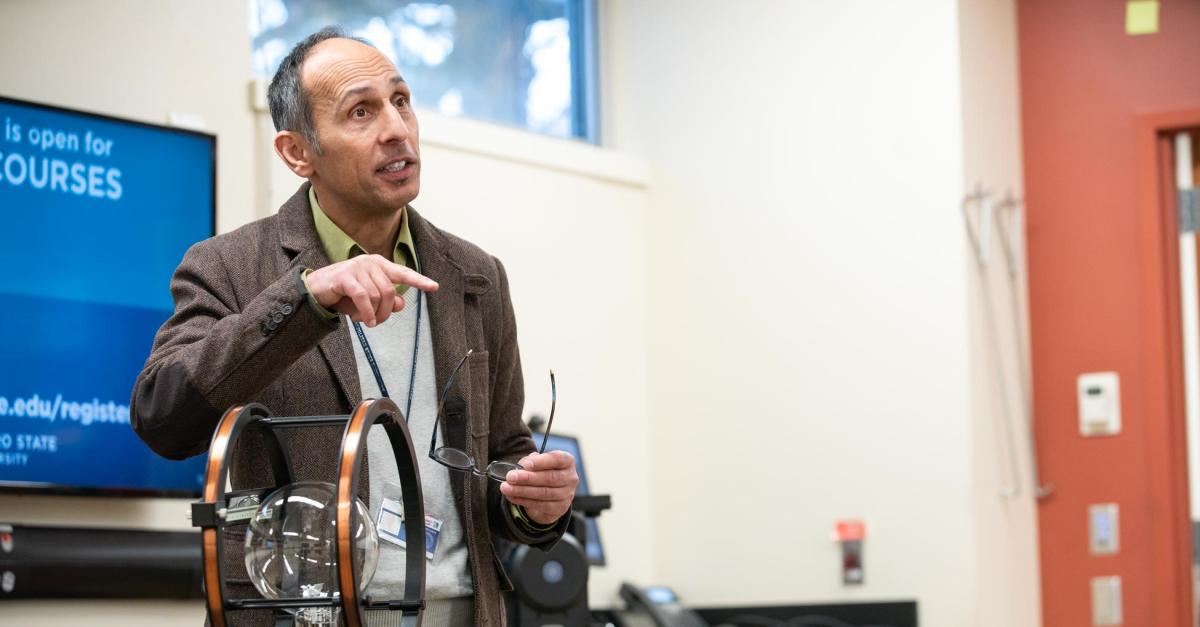Current students: Declare this program
Once you’re admitted as an undergraduate student and have met any further admission requirements your chosen program may have, you may declare a major or declare an optional minor.
Future students: Apply now
Apply to Metropolitan State: Start the journey toward your Physics Minor now. Learn about the steps to enroll or, if you have questions about what Metropolitan State can offer you, request information, visit campus or chat with an admissions counselor.
Get started on your Physics Minor
Program eligibility requirements
To be eligible for acceptance to the Physics minor, students must submit a College of Sciences Undergraduate Program Declaration Form once they have successfully completed all prerequisite courses. Each core science course must include at least one semester credit of professionally supervised on-ground laboratory experience with standard undergraduate laboratory equipment and materials. Lower-division (100- and 200-level) courses cannot be used to fulfill upper division core or elective requirements in the minor. All prerequisite and required courses must be completed with grades of C- or above. Transfer coursework equivalency is determined by the Natural Sciences Department.

